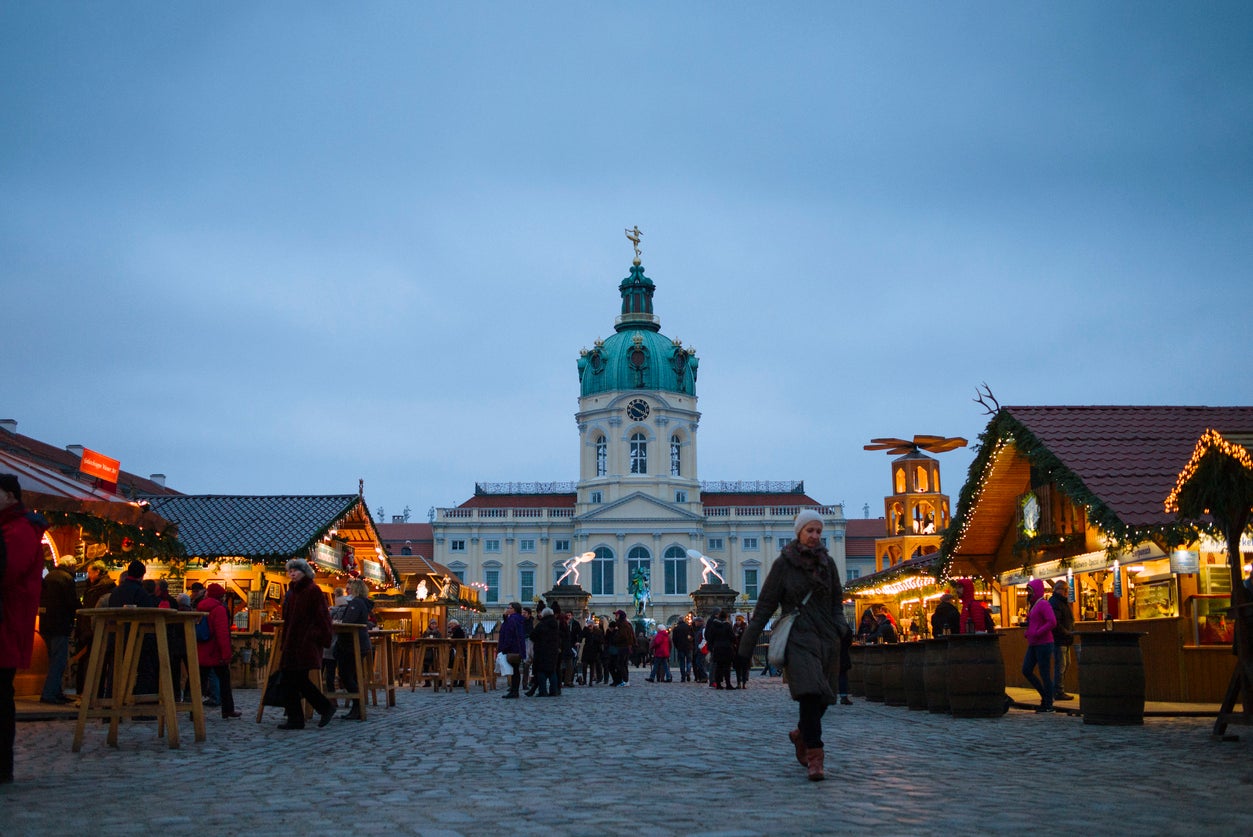Will Germany’s Christmas markets open given the surge in Covid cases?
The country recently recorded more than 50,000 new cases in one day

Many of the much-loved Christmas markets that pop up each winter across Germany risk being forced to close for a second year running, due to a surge in Covid cases.
The country is currently seeing a spike in new infections of the virus, recently recording more than 50,000 cases in one day for the first time since the pandemic began.
Germany also has the third lowest vaccination rate in Europe, with just 67 per cent of the population fully jabbed at this stage, and has suffered from the impact of the Delta variant.
Here’s everything we know so far.
When should the markets have opened?
Many of the country’s Christmas markets were set to open this week (22 November), with many towns eager to boost their economies after last year’s tourism slump - but local authorities are having to rethink plans amid fears about further transmission of the virus.
Typically the markets, which take place in big cities as well as small town centres, open towards the end of November and run up until 23 December, before closing for the actual Christmas holidays.
But last year, most markets were forced to close for the first time in decades due to social distancing concerns amid the first winter of the Covid-19 pandemic.
Which Christmas markets have definitely closed for 2021?
Berlin’s Charlottenburg Palace market was one of the first to announce its cancellation for this year, with a message on the VisitBerlin website saying: “This Christmas market in Berlin will unfortunately not take place in 2021.”
The market had been cancelled last winter for the first time in 14 years, but organisers had fully expected it to go ahead this year.
Organiser Tommy Erbe blamed politicians failing to give clear guidance for safe mingling, telling German media: “Once again, politics has failed to create clear and real conditions for organisers in time.”
Munich’s historic Christkindlmarkt was the next to announce its cancellation, on 19 November - three days before it was set to open - with the Lord Mayor saying: “It is bitter news that I have today for all Munich residents, and especially for the stall owners. However, the extreme situation in our hospitals and exponentially rising infection rates leave me no other choice.”
On Friday 19 November, the premiers of the German states of Bavaria and Saxony announced that their Christmas markets would be cancelled, state wide, due to surging cases in both regions.
Germany is currently seeing a weekly incidence rate of around 340.7 recorded infections per 100,000 people, according to the Robert Koch Institute health agency, but the figure is far higher in Saxony and Bavaria - the former recorded 593.6 infections on Friday, while the latter saw 625.3.
Other major Christmas markets, such as Cologne Cathedral’s festive fair and Frankfurt’s market, are still listed as opening to the public from 22 November.
What are authorities saying?
Saxony’s minister president, Michael Kretschmer, had earlier called for Christmas markets to close, saying: “You can’t imagine standing at the Christmas market, drinking mulled wine, while meanwhile hospitals are full and fighting over the last resources.”
These comments drew criticism from market organisers in his region who had been given the go-ahead weeks ago to start up the markets in time for Christmas.
“That is shoddy and irresponsible,” the organiser of Dresden’s Augustusmarkt, Holger Zastrow, told the country’s Bild newspaper in early November. “He made a regulation himself and said that the Christmas markets are taking place. Based on this commitment, we started planning and made dealer contracts… That drives the Christmas markets to ruin.”
Why are some markets still permitted to run in 2021?
It remains to be seen whether any other individual markets or state-wide authorities cancel the festivities for the 2021/22 winter season.
On 17 November, Germany’s Association of Towns and Municipalities announced that it would advocate the running of Christmas markets under what the country is calling “2G” rules - allowing only those who have been vaccinated against or recently recovered from the virus.
Local authorities such as Berlin’s are using these rules to offer different guidelines and requirements for vaccinated and unvaccinated citizens.
Many German Christmas market organisers had already put careful social distancing measures in place, with some implementing fences and planning to control the amount of visitors allowed to enter, and others insisting on proof of vaccination or proof of recovery in order to enter.
“We must take very many measures necessary to get through this winter. We must shelter our country from the winter,” said Germany’s Vice Chancellor Olaf Scholz in a parliamentary debate last week.
While the country is seeing record new infections per day, the rate of Covid deaths there is still below previous peaks of the virus in April 2020, January 2021 and April 2021.
Join our commenting forum
Join thought-provoking conversations, follow other Independent readers and see their replies
Comments
Bookmark popover
Removed from bookmarks